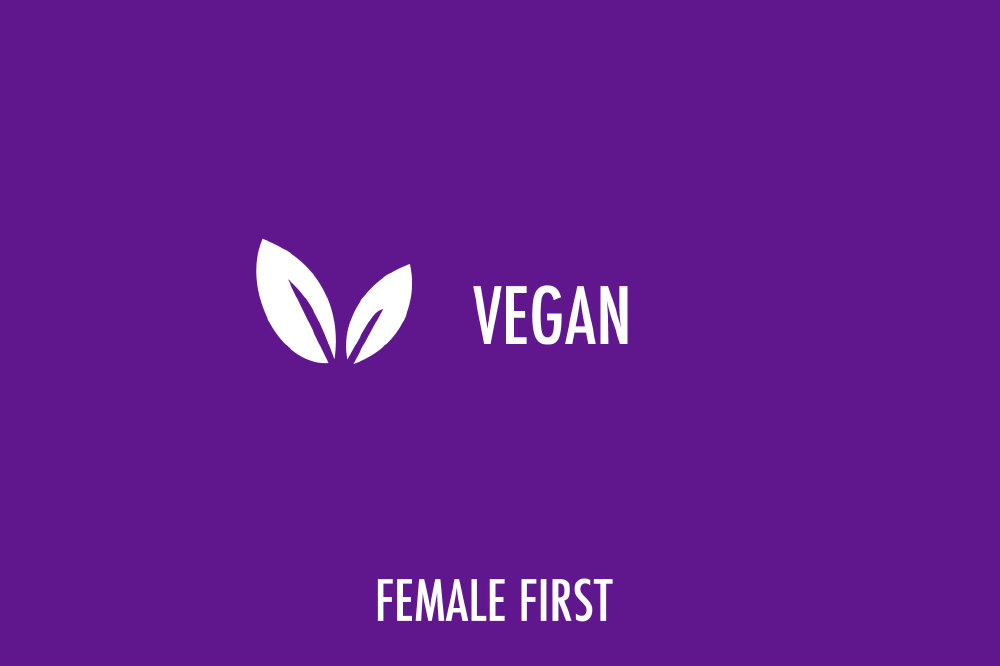Buckwheat probably isn’t a food you hear about all that often. Despite often being confused with a grain, Buckwheat is in fact a ‘pseudo-cereal’ super seed related to rhubarb and sorrel. It’s a highly nourishing, energising and tasty food that can be used as an alternative to potatoes, pasta or rice.

Vegan on Female First
Rich in both protein and fibre, this delicious, naturally gluten free and wonderfully versatile ingredient should certainly be one of your kitchen cupboard essentials, particularly if you follow a gluten free or vegan diet!
Here nutritionist Cassandra Barns reveals 8 reasons why buckwheat is so beneficial to our health.
It’s naturally gluten-free
Despite its name, buckwheat is not related to wheat at all, and contains no gluten. This makes buckwheat a great alternative for those with coeliac disease or a gluten intolerance, and can also be a gentler alternative for those with digestive problems.
Aids sleep and relaxation
One of the standout qualities of buckwheat is that it’s high in magnesium, a mineral that many of us may be lacking in our diets. One of magnesium’s roles is to help muscle relaxation. It’s also associated with having a calming effect on the body and mind, helping us to cope with stress and aiding restful sleep. So a bowl of Buckwheat Porridge, such as Clearspring’s Power Porridge [RRP £2.99, www.clearspring.co.uk] before bed could be great for helping you get better Zzzzs.
Help manage your weight
Buckwheat has a low glycaemic load (GL), which means that the carbohydrates it contains break down and release slowly into your blood. This helps maintain a steady blood sugar level and avoid the ‘swings’ that can happen after eating higher-GL foods such as white bread, rice or corn. You’ll find it easier to manage your appetite and eliminate cravings for sugary foods.
Balance your energy
Having a steady blood sugar level is also good for maintaining your energy levels throughout the day. So you can say goodbye to that afternoon energy slump! In addition, buckwheat is a good source of B vitamins, which are essential to help your body turn food into energy. This is especially beneficial for those on a vegan diet as B vitamins are typically found it meat and dairy products. Try including buckwheat, such as Clearspring’s Organic Buckwheat Pasta [RRP £2.79, www.clearspring.co.uk] in your lunchtime meal, to keep you energy levels balanced for the afternoon ahead.
Could help prevent varicose veins
Buckwheat is high in rutin, a type of flavonoid. Although it may have many health benefits, rutin is especially associated with toning and strengthening veins and capillaries. It may even help prevent or reduce venous insufficiency1 – the weakening of the valves or walls of the veins that can lead to varicose veins.
Provide antioxidant protection
Rutin and other flavonoids in buckwheat are similar to – or the same as – those found in fresh fruits and vegetables. For this reason, it’s thought that buckwheat and some other whole grains could have just as good antioxidant properties as fruits and veggies!2
Help lower cholesterol
Studies comparing populations who eat a lot of buckwheat to those who don’t show that the buckwheat-eaters have lower cholesterol3,4. Although this doesn’t prove that buckwheat lowers cholesterol, it’s an indication that it may be of benefit.
Keep your blood pressure in check
As well as keeping cholesterol levels down, buckwheat could help maintain a healthy blood pressure too3. This could be partly due to buckwheat’s magnesium content. As it plays a role in relaxing muscle, magnesium also relaxes artery walls too – which are partly made up of muscle. As the artery walls relax, the vessels dilate, easing pressure and allowing better blood flow.
References:
1. Aziz Z et al. A systematic review of the efficacy and tolerability of hydroxyethylrutosides for improvement of the signs and symptoms of chronic venous insufficiency. J Clin Pharm Ther. 2015 Apr; 40(2):177-85. 2. Whfoods.com. (2017). Buckwheat. [online] Available at: http://www.whfoods.com/genpage.php?tname=foodspice&dbid=11 [Accessed 8 Jun. 2017]. 3. Zhang HW et al. Comparison of hypertension, dyslipidaemia and hyperglycaemia between buckwheat seed-consuming and non-consuming Mongolian-Chinese populations in Inner Mongolia, China. Clin Exp Pharmacol Physiol. 2007 Sep;34(9):838-44. 4. He J et al. Oats and buckwheat intakes and cardiovascular disease risk factors in an ethnic minority of China. Am J Clin Nutr. 1995 Feb; 61(2):366-72.
Tagged in Vegan

